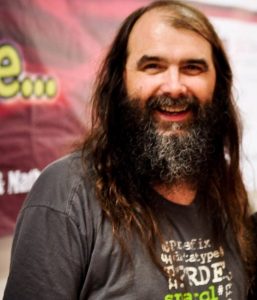
Abstract:
In an ACM Interactions column and an Irish HCI keynote I have explored Deep Digitality, an approach to the radical re-imagination of large scale systems of society: manufacturing, healthcare, government and healthcare. Deep Digitality takes the counter-factual premise asking what these systems would be like of digital technology had preceded the industrial revolution, the Medicis or even Hippocrates. Paradoxically, in some of these digital-first scenarios, digital technology is sparse and yet there is clearly a digital mindset at play. It is the kind of thinking that underlies some of the more radical digital apps and products, and builds on the assumptions of a world where computation and sensing are cheap, communication and information are pervasive, and digital fabrication is mainstream. This digital thinking connects with other ‘thinkings’ (computational, design, management, systems) and but appears distinct – less focused on decomposition and engineering than computational thinking, but more principle rather than process driven than design thinking. I have been trying to distill some of the defining features and heuristic principles of Digital Thinking and this talk captures some of this nascent work in progress.
Bio:
Alan Dix is Director of the Computational Foundry at Swansea University. Previously he has spent 10 years in a mix of academic and commercial roles. He has worked in human–computer interaction research since the mid 1980s, and is the author of one of the major international textbooks on HCI as well as of over 450 research publications from formal methods to design creativity, including some of the earliest papers in the HCI literature on topics such as privacy, mobile interaction, and gender and ethnic bias in intelligent algorithms. For ten years Alan lived on Tiree, a small Scottish island, where he engaged in a number of community research projects relating to heritage, communications, energy use and open data and organised a twice-yearly event Tiree Tech Wave that has now become peripatetic. In 2013, Alan walked the complete periphery of Wales, over a thousand miles. This was a personal journey, but also a research expedition, exploring the technology needs of the walker and the people along the way.
Alan’s role at the Computational Foundry has brought him back to his homeland. The Computational Foundry is a 30 million pound initiative to boost computational research in Wales with a strong focus on creating social and economic benefit. Digital technology is at a bifurcation point when it could simply reinforce existing structures of industry, government and health, or could allow us to radically reimagine and transform society. The Foundry is built on the belief that addressing human needs and human values requires and inspires the deepest forms of fundamental science.
Event details
- When: 18th February 2020 14:00 - 15:00
- Where: Cole 1.33b

